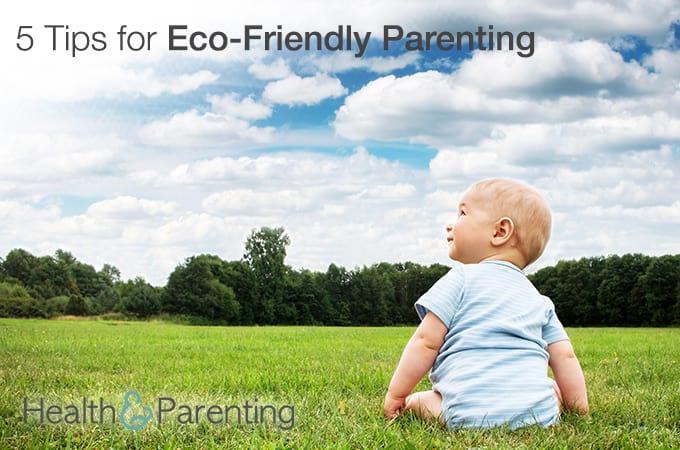When most of us were kids, no one was really talking about the environment, or even the safety of the food we were eating. Everything was about convenience, and most parents were just doing the best they could.
Today, we know a little bit more about some of the environmental hazards in the world, as well as how to limit our own carbon imprint. Still, raising a baby can take everything we thought we knew and spin it on its head.
So if you’ve always considered yourself fairly eco-conscious, and you want to raise your baby with that in mind, here’s where you should start:
- Diapers: Sure, the easy answer is that the most eco-friendly diaper option is cloth. But if you don’t have a washer and dryer, or you live in an area that is struggling through a drought, it might not actually be that simple. And besides, it’s okay to admit that you don’t have the time for cloth diapering. There are plenty of other options to consider when it comes to diapers. Biodegradable diapers and wipes exist, and services are popping up all over to help with the washing for families who do want to go cloth.
- Toys: Of course you’re going to buy your kiddo toys to play with, but consider frequenting local toyshops when possible, and buying toys made of natural wood and fibers.
- Cleaners: You absolutely want to keep your home clean and germ-free now that you have a baby crawling about. But you don’t want to expose your baby, your home, or your environment to a bunch of nasty chemicals. Consider making your own cleaners with household products like vinegar and lemon oil. Or, look into the various non-toxic cleaners that have been popping up in the market in recent years.
- Food: As your baby shifts into a solid food eating stage, consider skipping out on the store-bought jars of baby food and instead making your own purees or going the baby-led weaning route. Both will ensure you have more control over what your baby is eating, and that the environment suffers less from the production of baby food. Even better, this gives you a chance to stay organic as much as possible.
- Plastic: It would be near impossible to make your home completely plastic free, but some research is cropping up which suggests that even BPA-free plastics carry some dangers. To protect your family, keep plastic out of the microwave and opt for glass to store food whenever possible.
Written by Leah Campbell, infertility advocate, adoptive mama, writer and editor. Find me @sifinalaska on Twitter.
This information is not intended to replace the advice of a trained medical doctor. Health & Parenting Ltd disclaims any liability for the decisions you make based on this information, which is provided to you on a general informational basis only and not as a substitute for personalized medical advice. All contents copyright Health & Parenting Ltd 2016. All rights reserved.










